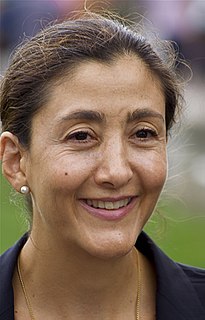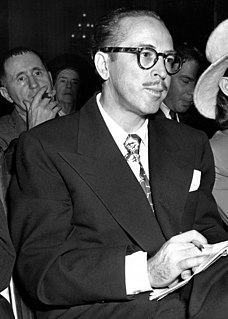A Quote by Sigmund Freud
Analysis does not set out to make pathological reactions impossible, but to give the patient's ego freedom to decide one way or another.
Related Quotes
The immature conscience is not its own master. It simply parrots the decisions of others. It does not make judgments of its own; it merely conforms to the judgments of others. That is not real freedom, and it makes true love impossible, for if we are to love truly and freely, we must be able to give something that is truly our own to another. If our heart does not belong to us, asks Merton, how can we give it to another?
Sin is one thing but instinctive reaction or passion is another. These are our reactions: pride, anger, sexual indulgence, hate, greed, and so on. The corresponding sins are the gratification of these passions: when a man acts and brings into corporeal reality those works which were suggested to him by his desires. It is impossible to exist without desires arising, but not to give way to them is by no means impossible.
Pathological states are the consequence of several determinate factors acting simultaneously...The manifestations of any given agent differ profoundly from one person to another. ...Each noxious agent can express itself by a great variety of different pathological states. ...Different agents can elicit similar reactions. ...The total environment and the (interior medium) constitute a multifactorial system.
Once rehearsals are done the writer really doesn't have a function on the set. If the script is stabilized, then the writer becomes a celebrity tourist visiting the set, trying not to get in the way. It's very good for the ego, to go visit a film set if you are the writer, because they give you a special chair, and tell you where you can sit to watch the monitor. They make you feel special, but at the same time, they make it perfectly plain that you are irrelevant!
"Understand the process of the ego. How does the ego live? The ego lives in the tension between what you are and what you want to be. A wants to be B - the ego is created out of this very tension. How does the ego die? The ego dies by you accepting what you are. That you say, "I am fine as I am, where I am is good. I will remain just as existence keeps me. Its will is my will."
It does not follow from the separation of planning and doing in the analysis of work that the planner and the doer should be two different people. It does not follow that the industrial world should be divided into two classes of people: a few who decide what is to be done, design the job, set the pace, rhythm and motions, and order others about; and the many who do what and as they are told.
Towards the outside, at any rate, the ego seems to maintain clear and sharp lines of demarcation. There is only one state -- admittedly an unusual state, but not one that can be stigmatized as pathological -- in which it does not do this. At the height of being in love the boundary between ego and object threatens to melt away. Against all the evidence of his senses, a man who is in love declares that "I" and "you" are one, and is prepared to behave as if it were a fact.
Then there was this freedom the little guys were always getting killed for. Was it freedom from another country? Freedom from work or disease or death? Freedom from your mother-in-law? Please mister give us a bill of sale on this freedom before we go out and get killed. Give us a bill of sale drawn up plainly in advance what we're getting killed for... so we can be sure after we've won your war that we've got the same kind of freedom we bargained for.
The division of the psychical into what is conscious and what is unconscious is the fundamental premise of psycho-analysis; and it alone makes it possible for psycho-analysis to understand the pathological processes in mental life, which are as common as they are important, and to find a place for them in the framework of science.




































